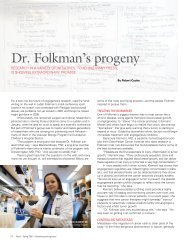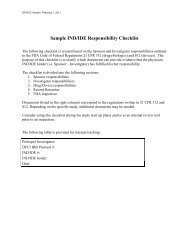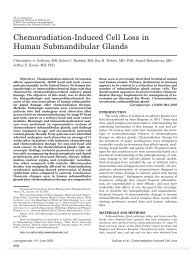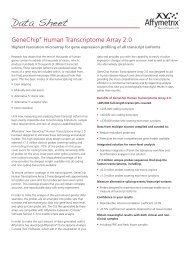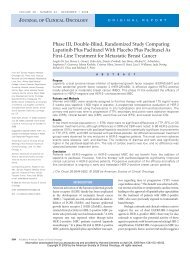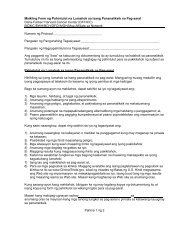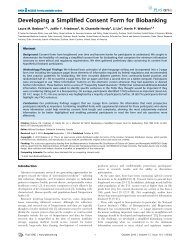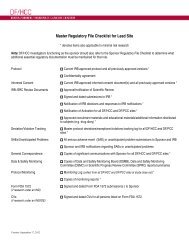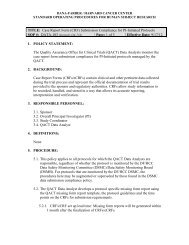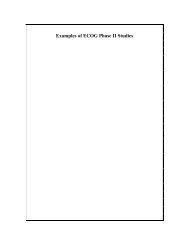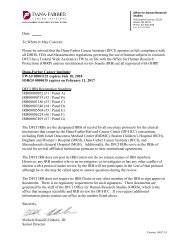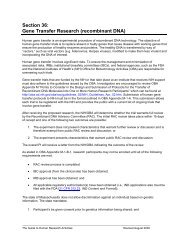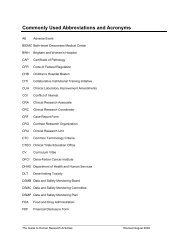Scientific Presentations Summer 2009 - Dana-Farber/Harvard ...
Scientific Presentations Summer 2009 - Dana-Farber/Harvard ...
Scientific Presentations Summer 2009 - Dana-Farber/Harvard ...
Create successful ePaper yourself
Turn your PDF publications into a flip-book with our unique Google optimized e-Paper software.
Repression Of Transcription Factor 7-Like 2 Increases Risk Of Type 2 Diabetes<br />
Tsega Meshesha<br />
Mentor: Melissa K. Thomas, MD, PhD<br />
Massachusetts General Hospital<br />
Diabetes mellitus is a disorder characterized by hyperglycemia that can occur through<br />
mechanisms such as impaired insulin secretion, insulin resistance in peripheral tissues<br />
and increased glucose output by liver. Genome-wide association studies have identified<br />
Transcription factor 7-like 2 (TCF7L2), a key element of the Wnt signaling<br />
pathway, as a genetic variant linked to a higher risk of developing type 2 diabetes.<br />
However, the mechanisms by which TCF7L2 is implicated in this disease are unknown.<br />
The objective of this study is to determine whether TCF7L2 deficiency alters<br />
pancreatic beta cell mass, function or insulin production. To address this question,<br />
we are investigating the phenotype of TCF7L2 heterozygous knockout as compared<br />
to wild-type control mice. The mice were genotyped by extracting DNA from tail<br />
biopsies. The extracted DNA was analyzed by polymerase chain reaction (PCR). To<br />
determine whether TCF7L2 deficiency alters insulin production and pancreatic architecture,<br />
pancreatic tissues from TCF7L2 heterozygote and wild-type mice were<br />
immunostained for TCF7L2, insulin, and glucagon. It is expected that if TCF7L2<br />
regulates pancreatic endocrine cell mass or hormone production, the immunostaining<br />
will reveal a change in beta and/or alpha cell mass or pancreatic hormone expression<br />
patterns when pancreatic tissue of TCF7L2 heterozygotes is compared to controls.<br />
This study may elucidate how TCF7L2 influences and/or regulates glucose levels.



